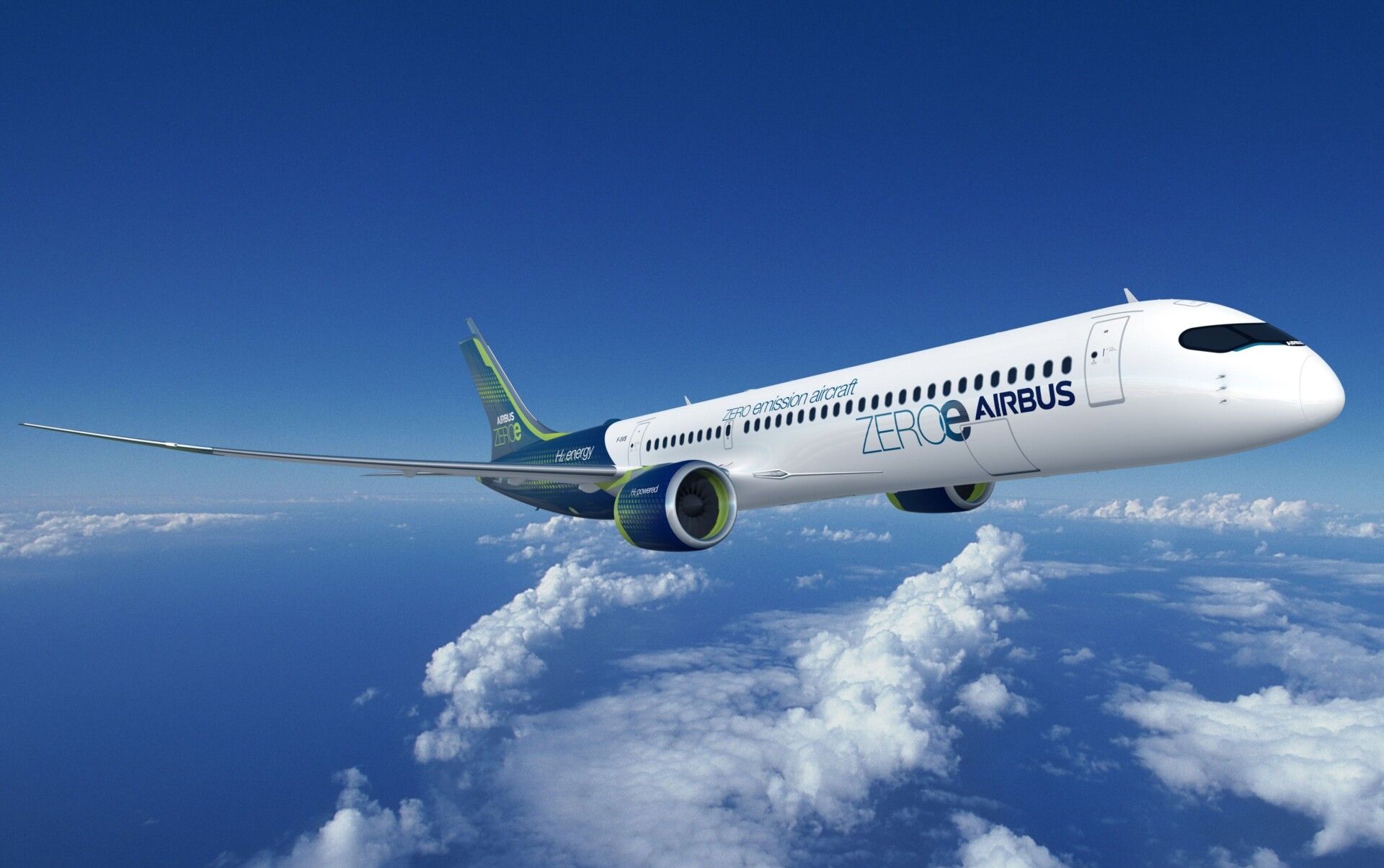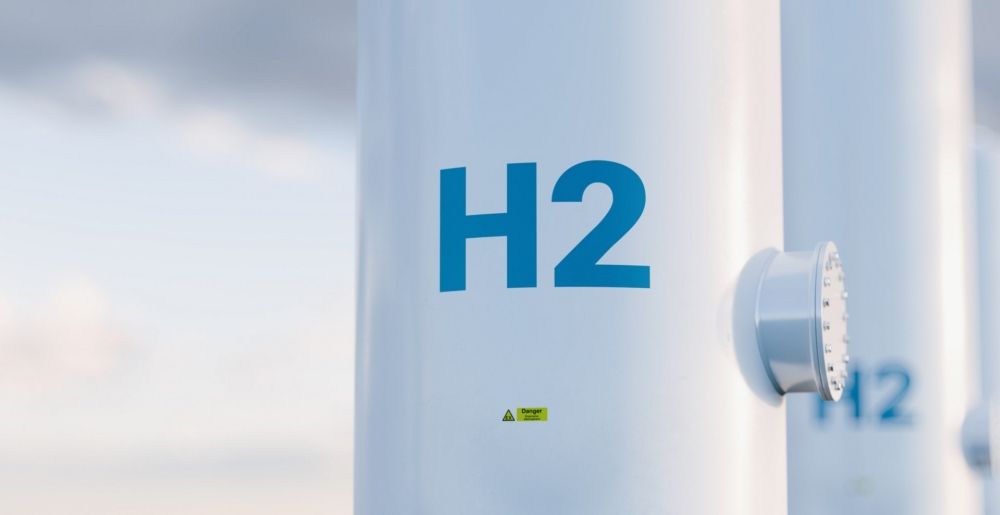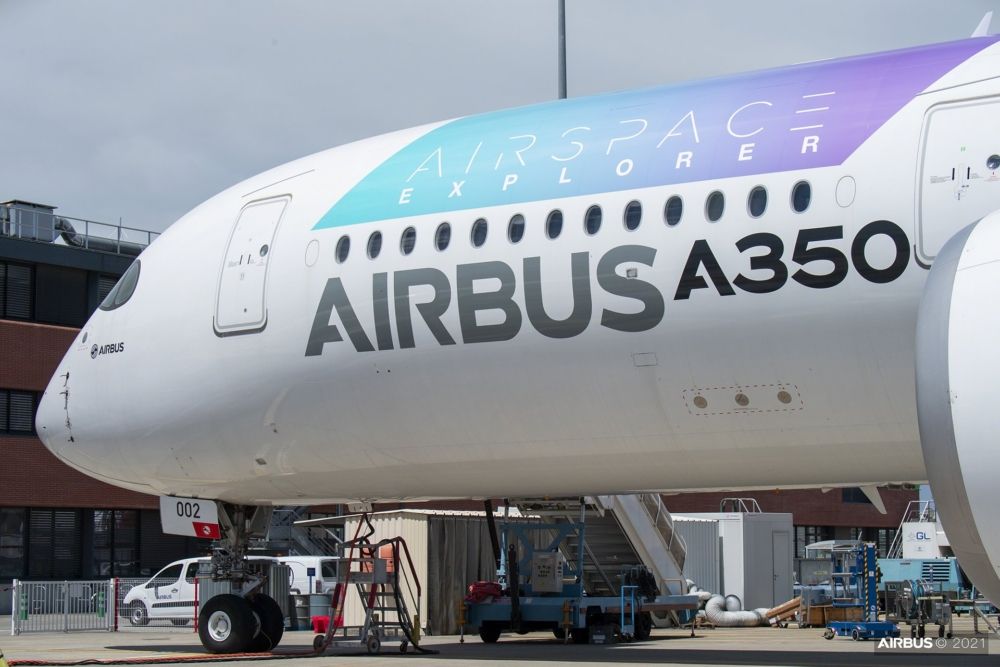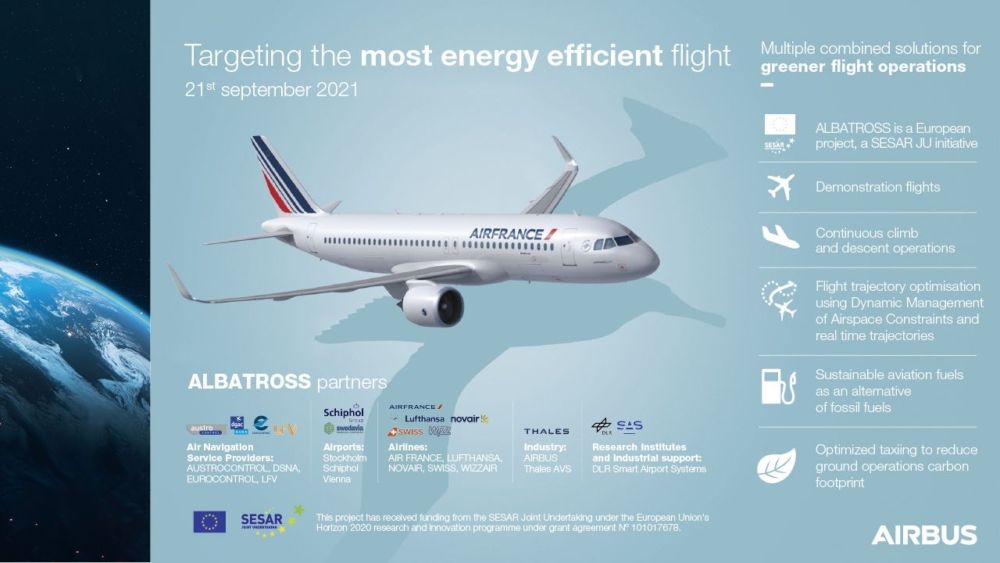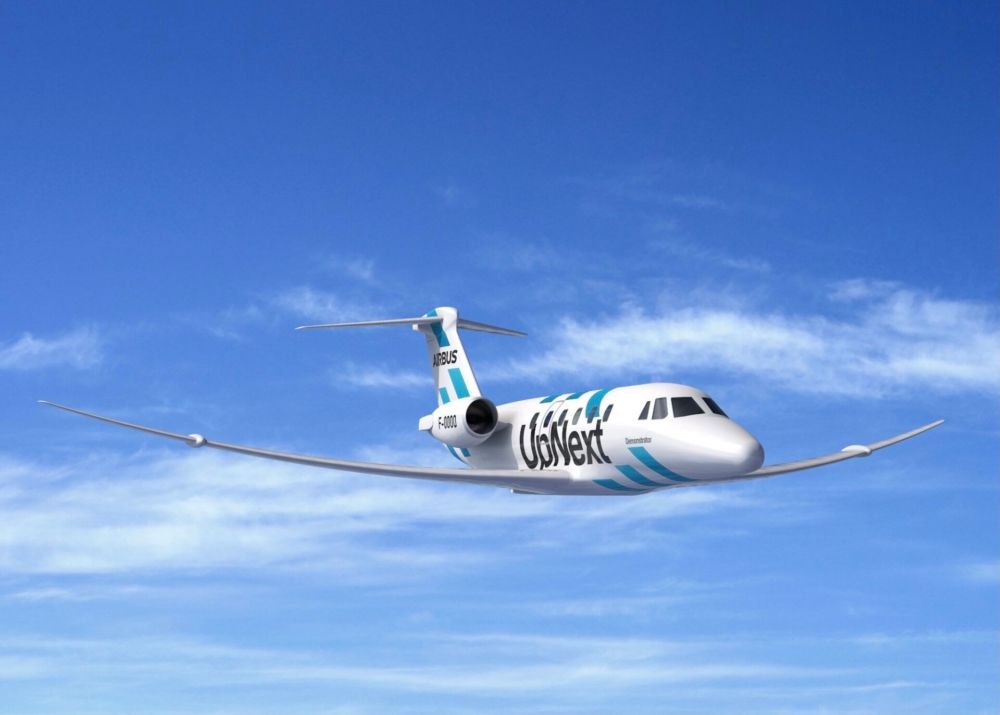The European Union wants to achieve climate neutrality within the next 30 years. Airbus shares this mission and targets net-zero aviation in Europe by 2050. At the Airbus Summit in Toulouse this week, Simple Flying heard details about how the manufacturer will reach this goal.
Plenty to consider
Over the last year, Airbus has made a series of bold announcements in relation to sustainability. The planemaking powerhouse has four sustainability commitments - decarbonization, product responsibility, a sustainable supply chain, and zero-emission technology. Three decades may seem like a lot, but in the aviation industry, it's almost nothing.
Sustainable aviation fuel (SAF) is proving to be a focal point across the industry to reduce harmful emissions. All of Airbus' aircraft are certified to fly with 50% SAF blend.
The company is also keen to achieve certification for 100% SAF for its fleet by 2030. It is supporting the ramp-up of power-to-liquids, which it sees as having significant scalability and climate impact potential. The firm will also reduce its own emissions by using SAF for its Beluga fleet and biogas trucks for road transport.
There was a recent breakthrough in this field. Airbus signed a deal with Signature Flight Support to supply SAF to its Mobile facility. By November this year, all planes delivered to airlines will be backed by a blend of SAF and standard jet fuel.
Technological advances
SAF will hold prominence for many years, especially since long-haul travel is expected to take a while to adapt hydrogen and electric breakthroughs. However, Airbus believes that these fuels aren't to be relied on in the long term, and the future revolves around other elements.
"I think all agree in the industry that SAF is a short-term opportunity and a short-term priority because we already have a fleet that is capable of SAF. It's all about commitment, investments, and believing in SAF. So, on that one, we agree with all other manufacturers. On hydrogen, there are different beliefs in the speed at which we can make it happen. At Airbus, we decided to take the bull by the horns. We work with hydrogen on other sectors, Airbus, space in particular," Airbus CEO Guillaume Faury shared at the Airbus Summit.
"So, we have experience in hydrogen. We are working with a lot of SMEs, with startups, and also, with large companies of other sectors, and the more hydrogen we use, the more that the hydrogen becomes credible, the more likely other manufacturers will come to it. We've seen the engine makers significantly change their views on hydrogen, which is very positive. So, I think there is a change in the industry, and it comes at different paces. but I think we will get there."
Stay informed: Sign up for our daily and weekly aviation news digests.
Always looking ahead
The sale of new aircraft will play an essential role in reaching the 2050 target. Even the current, up-to-date offerings of Airbus are far more efficient than their predecessors. For instance, the A320neo family brings 20% fuel burn savings per seat. With significant breakthroughs expected in the coming decade, airlines will undoubtedly be preparing to overhaul their fleets to bring further savings.
One series of aircraft that is set to be a game-changer in this field is ZEROe. The hybrid-hydrogen concepts are billed to be powered through modified gas turbine engines. Airbus is working on three variants in the form of a turbofan, turboprop, and blended-wing body. Airlines are already expressing their interest, with Lufthansa sharing that it wants to be a launch customer. Airbus is targeting a 2035 service entry, and with big names on board, the passenger journey could be a whole new experience.
Better together
Authorities across Europe have been stringent regarding their sustainability policies as of late. Along with notable 2050 targets, the European Commission published its Fit for 55 legislative package this summer. With this initiative, European officials want the region to be the first climate-neutral continent by 2050 and to reduce emissions by 55% in 2030.
However, the consensus at the Airbus Summit was that there needs to be clearer global policies and timescales. It's not enough for one or two regions to overhaul their operations. With aviation being a worldwide industry, complacency in one area could impact the broader market. So, there are calls for a more united approach in this next chapter.
Cooperation with other stakeholders is key. As a result, AIrbus is collaborating with Air France and DSNA, the French Air Navigation Service Provider (ANSP), to develop the "most energy-efficient flights." The groups launched their demonstration flight from Paris to the Airbus Summit on Tuesday.
Part of the ALBATROSS initiative, aviation organizations are looking to introduce better Air Traffic Management (ATM). Combining this aspect with equipment revolutions will prove to be vital in flying more sustainably.
Advancements in ATM are proposed across the board. For instance, revisions to the Single European Sky proposals will help to curb emissions by up to 15%.
Keeping an open mind
Overall, Airbus is taking a holistic approach to decarbonization. It realizes that there is no silver bullet.
So, from its eVTOL to expand urban air mobility, to its progress in SAFs, to its leap into hydrogen, it's taking on the challenge from all angles.
What are your thoughts abouAirbus's' ambitious sustainability goals and how they can be achieved? What do you make of the 2050 industry net-zero target? Let us know what you think of the plans and their prospects the comment section.

